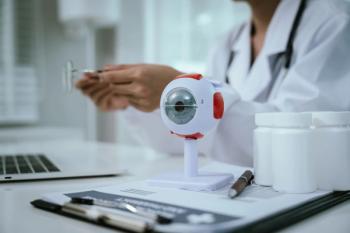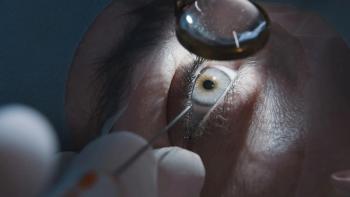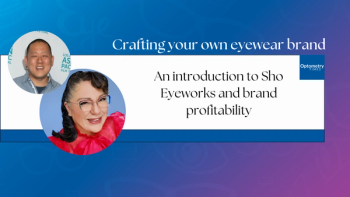
Visions of the future: Contact lenses of today and tomorrow
Two EyeCon ’21 faculty panelists highlight their presentation, “Visions of the Future: Contact Lenses of Today and Tomorrow.”
Pamela A. Lowe, OD, FAAO, of the Professional Eye Care Center in Niles, Illinois, and Louise Sclafani, OD, FAAO, FSLS, Clinical Associate Professor of the Illinois Eye Institute in Chicago, Illinois, share highlights of their EyeCon ’21 presentation, “Visions of the Future: Contact Lenses of Today and Tomorrow” with Optometry Times®’ Associate Editor Brooke Henson.
Brooke Henson: I'm Brooke Henson with Optometry Times® and I'm here today with Dr. Pamela Lowe, an optometrist in Chicago, Illinois, and Dr. Louise Sclafani, an optometrist in Chicago, Illinois, to discuss their EyeCon '21 presentation on Contact Lenses of Today and Tomorrow.
Doctors, thank you so much for joining me. Would you start us off with a brief summary of your presentation?
Louise Sclafani, OD, FAAO, FSLS: Sure. Thanks, Brooke, for having us here. You know, we know that the group of optometrists who is viewing we're diverse, they are either dabblers in contact lenses, or some of them are designers of contact lenses. And so we wanted to appeal to all of them and give a little bit about the history of contact lenses, what's available today, and you know, what we could look forward to in the future.
Pamela A. Lowe, OD, FAAO: Right, and along with that, we really wanted to stress the importance of contacts as part of primary eye care. Most of us are practicing full scope, primary care, optometry and contact lenses are a large part of what we do to enhance our patients' lives.
Henson: Excellent. And if you had to choose one main takeaway from your presentation that you would have wanted ODs to leave with, what would that be?
Dr. Lowe: Well, if if I had to choose one, there were so many great takeaways, it would be the call to action for the public health urgency of myopia management, really embracing two of the three treatments, which all contact lens base is so important for all of us. It's something we've been doing for a long time as a profession. And we really need to start getting more of us involved in that because of the sheer numbers of myopia.
Dr. Sclafani: And I would echo that, as well as saying, you know, even if you aren't a true contact lens specialist, it's been made a lot easier. And it just requires some minimal skills to start with myopia management. And if you're heavily disease oriented, you should understand that a lot of the retinal conditions as well as glaucoma and early cataracts are associated with myopia. And if we could hit it off early in our patients' career, it's a great opportunity, and it's something that we need to have part of our toolbox. It's a requirement in these days. And the other thing I would suggest, as you know, that does contact lenses do require good technology, but you have the basic tools already in your practice.
Newsletter
Want more insights like this? Subscribe to Optometry Times and get clinical pearls and practice tips delivered straight to your inbox.













































